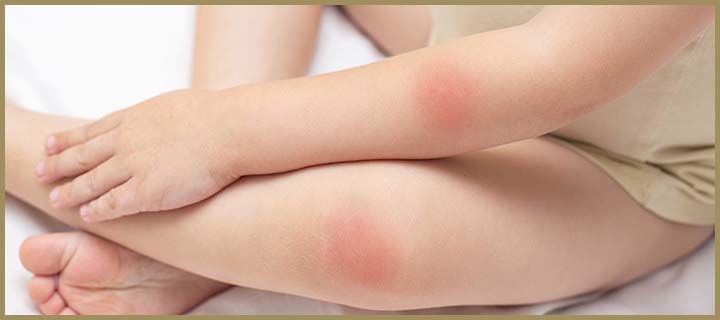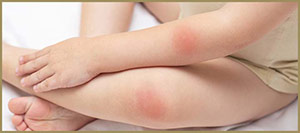Managing Allergies in Children: Tips for Parents
Managing allergies in children requires a proactive approach to reduce symptoms and improve quality of life. Parents can help by identifying triggers, creating an allergy-friendly home environment, and keeping track of symptoms. Regular visits to an allergy specialist are crucial for personalized care and treatment plans. Dr. Joel H. Selter, M.D., at Allergy & Asthma Care Rockland provides guidance for parents to manage their child’s allergies effectively, ensuring better control and a healthier, more comfortable life for your child. For more information, contact us or book an online appointment. We have convenient locations to serve you in Suffern, NY, and Monroe, NY.


Table of Contents:
What are the most common allergies in children?
How can I tell if my child has allergies?
How can I manage my child’s seasonal allergies?
How can I reduce my child’s exposure to common allergens?
At Allergy & Asthma Care we understand how significantly allergies can impact a child’s overall health, comfort, and quality of life. Our board-certified allergists specialize in diagnosing and treating common pediatric allergies, ensuring your child receives personalized care and effective management strategies.
Food allergies are among the most common allergic conditions we see in children. Typical food allergens include peanuts, milk, eggs, soy, wheat, fish, shellfish, and tree nuts such as almonds or walnuts. Symptoms can vary widely, from mild digestive discomfort and skin reactions to life-threatening anaphylaxis, a condition that requires immediate medical intervention. At our practice, we help families identify specific food allergens through comprehensive testing, provide education on allergy avoidance, and equip caregivers with detailed emergency action plans.
Environmental allergies, also known as allergic rhinitis or hay fever, frequently affect children in our region. Common triggers include pollen from trees, grasses, and weeds, dust mites, mold spores, and pet dander. Typical symptoms include sneezing, nasal congestion, itchy and watery eyes, coughing, and wheezing. Our team offers advanced diagnostic testing and personalized treatment plans—including allergen avoidance strategies, medication guidance, and allergy immunotherapy (allergy shots)—to help your child breathe easier and feel better.
Determining whether your child has allergies involves observing symptoms carefully and consulting with a specialized healthcare provider, such as the allergy experts at Allergy & Asthma Care. Our experienced allergists and immunologists specialize in diagnosing and treating pediatric allergies and asthma, helping your child achieve optimal health and comfort.
Children experiencing allergies commonly exhibit symptoms affecting the respiratory system, skin, digestive tract, or eyes. Respiratory symptoms frequently observed include persistent sneezing, nasal congestion or runny nose, coughing, wheezing, or trouble breathing. Additionally, children with allergies often experience itchy, watery, swollen, or reddened eyes, as well as dark circles beneath the eyes, commonly referred to as allergic shiners.
Skin reactions are another common indicator of allergies, including redness, itching, hives (raised, red bumps on the skin), eczema, or swelling of the lips, face, or extremities. If your child’s allergies are food-related, digestive symptoms such as nausea, vomiting, diarrhea, stomach cramps, or abdominal pain may occur shortly after consuming the allergenic food.
At Allergy & Asthma Care, we understand how seasonal allergies can significantly impact your child’s daily comfort, sleep, and overall quality of life. Our experienced allergists and immunologists are dedicated to helping your family effectively manage allergy symptoms and improve your child’s overall well-being.
Here are several practical strategies our specialists recommend for managing your child’s seasonal allergies:
1. Limit Exposure to Allergens
Keeping windows closed during peak pollen hours—usually early morning and late afternoon—can greatly reduce allergen exposure. Using air conditioning at home and in your vehicle can also help filter airborne allergens, providing your child relief indoors.
2. Maintain Good Hygiene Practices
Bathing or showering your child regularly, especially before bedtime, can remove pollen and other irritants from their skin and hair. Frequently washing clothing and bedding in hot water will further minimize allergen contact, reducing nighttime allergy symptoms.
3. Monitor Local Pollen Forecasts
Checking daily pollen counts can help you plan outdoor activities when allergen exposure is lower, reducing your child’s symptoms and discomfort.
4. Consider Nasal Saline Rinses
Saline nasal sprays or rinses can gently clear allergens from nasal passages, providing relief from congestion, sneezing, and nasal irritation. Our allergists can guide you on proper usage techniques suitable for children.
At Allergy & Asthma Care, we are committed to helping your child breathe easier and live healthier.
At Allergy & Asthma Care, we understand that effectively managing your child’s exposure to allergens is crucial for improving their quality of life and minimizing uncomfortable allergy symptoms. Our experienced allergists recommend several practical strategies to help families create healthier environments at home and beyond.
Identifying Allergens: The First Step
Through comprehensive allergy testing available at our practice, our specialists can pinpoint specific allergens, such as pollen, dust mites, pet dander, mold, and certain foods, that trigger your child’s symptoms. Accurate identification allows our team to provide targeted recommendations and customized treatment plans.
Maintain an Allergy-Friendly Home
Regular household cleaning significantly reduces allergen exposure. We recommend vacuuming carpets and upholstery frequently with a vacuum cleaner equipped with a high-efficiency particulate air (HEPA) filter. Additionally, washing bedding, curtains, and stuffed animals weekly in hot water helps eliminate dust mites. Keeping indoor humidity below 50 percent is crucial to controlling mold growth; we suggest using a dehumidifier or air conditioner to help manage indoor moisture levels effectively.
Managing Pet Allergies
If your child is allergic to pets, creating pet-free zones—especially in bedrooms—can greatly reduce symptoms. Bathing pets regularly and frequently cleaning areas they inhabit are also beneficial measures. Our allergists can guide you in managing pet-related allergens without having to completely remove a beloved pet from your home whenever possible. For more information, contact us or book an online appointment. We have convenient locations to serve you in Suffern, NY, and Monroe, NY. We serve patients from Suffern NY,Monroe NY, New City NY, Spring Valley NY, Monsey NY, Airmont NY and Mahwah NJ.

Additional Family Care Services You May Need

Additional Family Care Services You May Need





